- His parents died when he was young and he was brought up by a family slave called Hipolita. He described Hipolita as the ‘only mother I have known.
- During the movement for independence, 696 battles were fought using on average 1,400 men. Bolivar often acted as a military leader and sometimes left to his chief commander Antonio Jose de Sucre.
- Bolivar married in 1801, but his wife Maria died early the next year from yellow fever. Bolivar was so upset he vowed never to marry again, which he didn’t. He did have several lovers.
- When Bolivar was only 22 years old, he got down on his knees and made a vow to his friend Alexander von Humboldt that he would lead his people to freedom. He was standing on Monte Sacro, Rome – a hill famous for being the scene of a popular uprising of poor Romans against the upper-class.
- On 5 July 1811, the national congress of Venezuela declared its independence. Bolivar was overjoyed and to mark the occasion of Venezuela’s freedom he made the decision to free all the slaves in his family. (at a time when slavery was important to the economy)
- In 1815, he fled to Jamaica where he wrote one of his most powerful words on freedom
“A people that love freedom will in the end be free. We are a microcosm of the human race. We are a world apart, confined within two oceans, young in arts and sciences, but old as a human society. We are neither Indians nor Europeans, yet we are a part of each.” – Bolivar, Letter from Jamaica, 1815
- Bolivar received support from many countries and rulers across Latin America. For example, President Alexandre Petion of Haiti gave substantial support to Bolivar. Haiti had recently freed itself from French rule.
- Bolivar was a great self-publicist and he used this to good effect. When he returned to Venezuela in 1816, he was successful in spreading rumours about his successful army. Even inventing military victories. This helped bolster morale amongst the population for the cause of liberation.
- One story about Bolivar is that he was on his own when he saw 15 Spanish troops about to encircle him. He shouted out to his own troops the order to attack. (his troops were not there) but the Spanish retreated rather than face his imaginary army.
- Bolivar visited Great Britain and was impressed at their model of political governance. He sought to emulate their government in his own constitution. He was able to secure the help of many troops from Great Britain and Ireland which were vital in later battles to drive out the Spanish.
“The freedom of the New World is the hope of the Universe.” – Simon Bolivar
- In 1819, h
inter of 1824, he led his troops over another Andes pass – 3,600m high to liberate Peru. He lost many men due to exposure and the blinding sun, but proceeded to defeat the Spanish forces at the Battle of Junin, starting the liberation of Peru. Never one to hold back on drama, Bolivar exclaimed to his men on the trek
“Soldiers you are about to finish the greatest undertaking Heaven has confided to men – that of saving an entire world from slavery!”
- Bolivar had a grand plan and vision for a federation of southern American states. It was bold and forward thinking but alas did not come to anything as there was too much internal division.
“It is harder to maintain the balance of freedom that it is to endure the weight of tyranny.” – Simon Bolivar
- The last few years for Bolivar were upsetting. Despite achieving the liberation of many countries, former allies turned on him and there was a serious attempt on his life. His greatest general, Sucre was assassinated on the orders of a former friend of Bolivar – Jose Maria Cordoba.
- In 1829, Bolivars own country Venezuela left the Gran Colombia federation.
- Bolivar died from tuberculosis in the house of a Spaniard who was loyal to Bolivar. He requested all his papers destroyed but his friends did not listen.
- Bolivar has often been called the “Washington of South America” – like George Washington, Bolivar had to deal with poorly equipped and poorly paid armies. They both overcame great odds to liberate their country from a colonial power. Both were enlightenment thinkers though Bolivar freed his slaves, Washington never did. Bolivar was also more of a dictator than Washington.
- Bolivar was born rich to an aristocratic family. But, throughout his life, his wealth diminished and he died quite poor. Despite loving fame and flattery, he had little interest in material wealth.
- Bolivar was first buried in Santa Maria where he died. But, in 1842, his remains were moved to Caracas in Venezuela. In 1842, he was moved to the cathedral of Caracas and in 1876, he was relocated to a monument at the Pantheon of Venezuela. In 2010, his remains were dug up and tested for poison, but found to be negative.
Citation: Pettinger, Tejvan. “Facts Simon Bolivar”, Oxford, UK. www.biographyonline.net, Last updated 21 March 2020.
Bolivar: American Liberator
Bolivar: American Liberator at Amazon
Related

Courageous people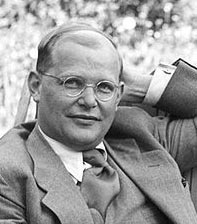
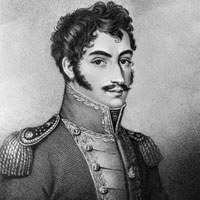

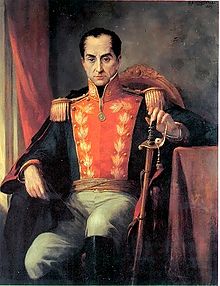
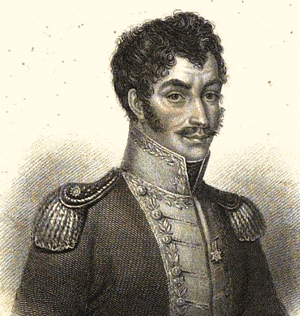
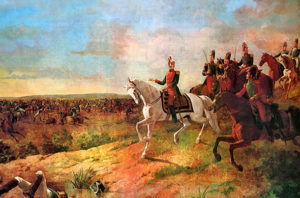 inter of 1824, he led his troops over another Andes pass – 3,600m high to liberate Peru. He lost many men due to exposure and the blinding sun, but proceeded to defeat the Spanish forces at the Battle of Junin, starting the liberation of Peru. Never one to hold back on drama, Bolivar exclaimed to his men on the trek
inter of 1824, he led his troops over another Andes pass – 3,600m high to liberate Peru. He lost many men due to exposure and the blinding sun, but proceeded to defeat the Spanish forces at the Battle of Junin, starting the liberation of Peru. Never one to hold back on drama, Bolivar exclaimed to his men on the trek

Comments are closed.
*/